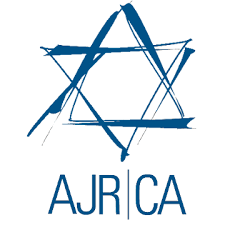It is quite upsetting to learn that a cantor at the centre of sexual assault claims would assist in leading Yom Kippur services at a Beverly Hills synagogue. It serves as a stark reminder of the necessity for major Jewish organisations to set standards and implement consistent policies in order to prevent sexual harassers and predators from becoming accepted members of the community. Advertisements for High Holiday services at the Temple of the Arts in Beverly Hills depict the contentious cantor Nathan Lam.
The Forward reported in the past that a former student of Lam’s, a female rabbi and cantor, accused him of “sexual assault” and called his behaviour toward her “predatory.” After conducting an inquiry, the Stephen S. Wise Temple in Los Angeles, where Lam served as cantor, revealed that he had “engaged in an inappropriate sexual relationship” and had broken the rules for both Reform and Conservative cantors in December 2020.
Additionally, according to the Forward, Wise Temple stated that it has “received reports and concerns about additional potentially inappropriate connections,” including “unwanted advances and dating of congregants.”
Lam had been the director of the cantorial programme at the Academy for Jewish Religion in California since 2001. The academy launched its own “deep and extremely thorough examination” into Lam’s actions. The AJRCA informed the complainant “that it would have fired Lam had he not retired” as a result, and once Lam retired, “the school prevented him from reemployment,” according to the Forward. Due to pressure, Lam “abandoned those roles [at Wise Temple and the AJRCA],” according to the charges of sexual misconduct. He “resigned just before the [AJRCA’s] investigation was finished.”
The Nathan Lam affair is only the tip of a much larger #MeToo iceberg in the American Jewish community, which is the issue.
Hebrew Union College, the rabbinical school of Reform Judaism, recently published a report detailing sexual harassment and assaults committed by at least six of its administrators and academics. The United Synagogue of Conservative Judaism and two other Reform institutions are both now looking into related issues.
Investigations are crucial and required. What punishments or other repercussions would the administrators of those institutions impose on staff members who were aware of the abuse but did nothing to stop it?
Take into account the fact that Jewish film festivals are currently screening “American Birthright,” directed by Becky Tahel, which examines Jewish marriage customs. Steven M. Cohen, a formerly well-known Jewish sociologist and avowed but unrepentant sexual abuser, is one of many who appears in the movie to explore Jewish identity and continuity.
Cohen has never provided a comprehensive public accounting of his conduct. Furthermore, he has never offered a sincere, unequivocal apology to all of his victims, both those who spoke out and the many more who chose not to. He has never given them compensation or otherwise taken concrete steps to atone. Instead, he has sought reintegration into Jewish communal space on numerous occasions. Without such concrete actions, Cohen’s participation in “American Birthright” or any other public recognition or role is a violation of the necessary standards of accountability and nontolerance for sexual abuse in Jewish community settings, as well as of his victims.
Change has to start from the top. Early in 2020, Dianne Lob was elected to lead the Conference of Presidents of Major American Jewish Organizations, the apex organisation for more than 50 American Jewish organisations, becoming just the third woman to do so. Lob ought to have been among the first to assist the community in addressing the crisis of sexual harassment and abuse in Jewish professional life as someone who contributed to breaking one of the biggest glass ceilings in the organised American Jewish community.
250 Jewish academics, rabbis, and community leaders signed a petition that my colleagues and I organised for the Committee on Ethics in Jewish Leadership asking the Conference of Presidents to “bar from its activities any Jewish organisational representative who has committed sexual harassment or assault.”
“I am happy to learn from the present Conference of Presidents leadership that the Conference has a longstanding, strict policy against sexual harassment,” Lob said. We’ll continue to pay attention to this important matter.
That answer sidestepped the question of whether the Conference of Presidents should exclude abusers from its gatherings. We contacted Lob once more, but got no response. Even the most basic action we suggested has not been taken by the Conference in more than two years.
The Conference of Presidents’ decision to bar any representative of a Jewish organisation who has engaged in sexual harassment or assault from its events would be a significant and urgently needed act of leadership on this crucial issue and for a zero-tolerance policy toward such behaviour in Jewish communal life.
Yom Kippur services should not be led by anyone who has been credibly accused of sexual assault, and Conference of Presidents meetings should not be attended by them either. We should have learned that by now, surely, thanks to the #MeToo movement.
